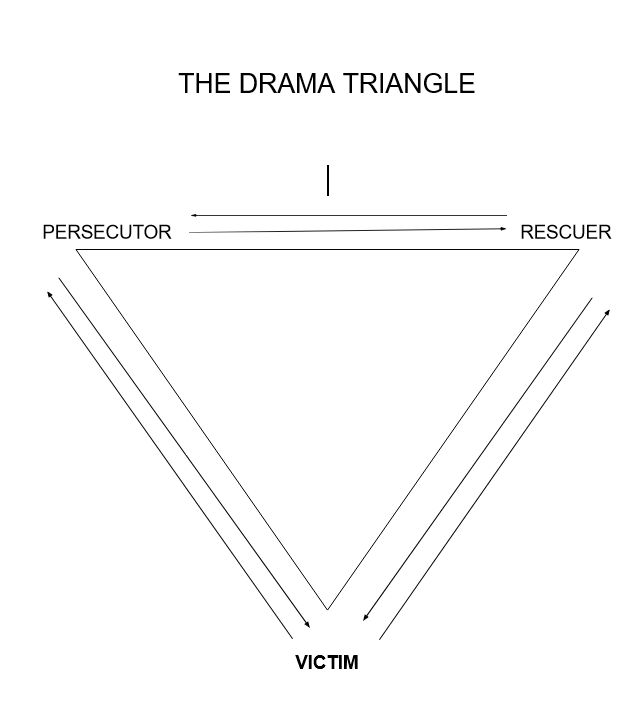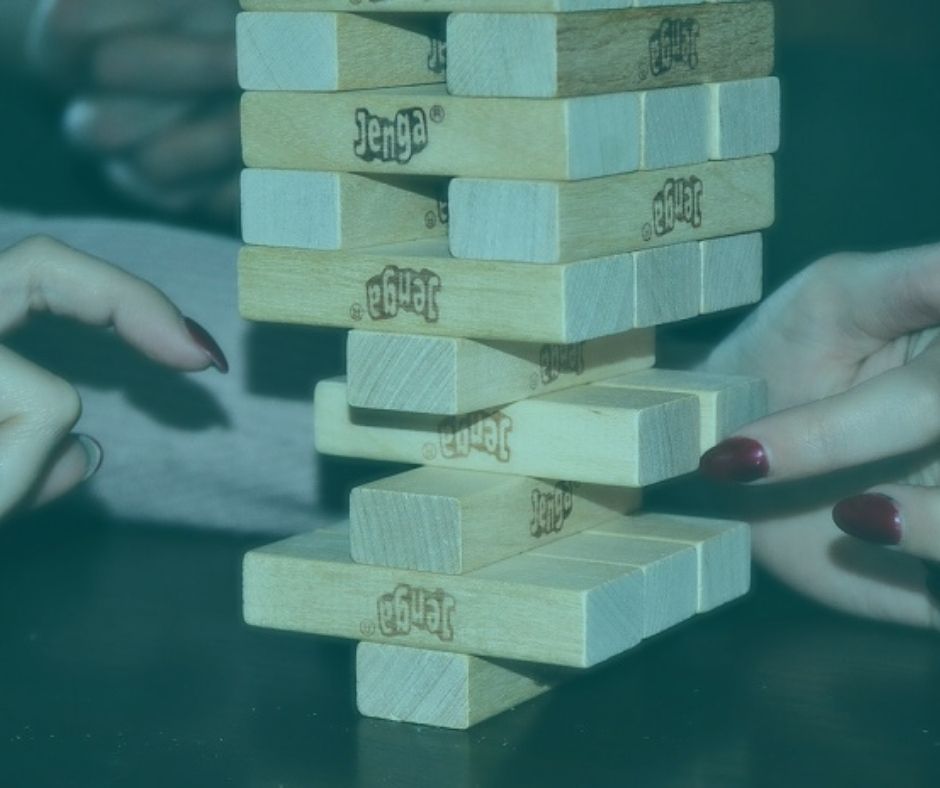
Could You Be Caught Up In A Drama Triangle?
A common thing that clients tell me is that they feel disrespected or undervalued by people in their lives, whether it be with family, among friends, or at work.
These experiences can make them feel helpless and victimised, leading to emotions like anger and defensiveness towards those who are causing them distress. Consequently, they may turn to someone to rescue them from the situation.
This intricate interplay of upsetting emotions and shifting dynamics can trap us in what's known as a Drama Triangle.
The Drama Triangle model was first developed by the psychiatrist Stephen Karpman in the 1960s and is still very popular in modern-day therapy. Drama Triangles describe a situation where people take on certain roles; each person reinforcing unhelpful behaviours in the other - and so it goes on and on in a never ending cycle.
In a Drama Triangle, there are three roles: the Persecutor, the Victim and the Rescuer.

Here's An Example of a Drama Triangle
David, and his wife, and son, had become caught up in an unhealthy pattern.
David was an easy going sort of person who loved his wife and his son dearly. However, his wife and son didn't always get on with each other very well.
His son Greg would complain to David about his mother, then she in turn would complain to David about their son. Stuck in the middle David would often find himself in the role of Rescuer trying his very best to bring them together. This had been going on for a long time. David was becoming more and more fed up with the situation.
The three of them were caught up in a Drama Triangle. (It's worth noting that this pattern can also manifest between two people or even a larger group,because it's not necessarily tied to a specific number of people; rather, it's characterised by three distinct roles that are being played out.)
Persecutor, Victim and Rescuer
When David's son complained about his mother he was taking on the role of victim, making her the persecutor and expecting his father to be the rescuer.
When his wife complained to him about their son she was taking on the role of victim making their son the persecutor and again making David the rescuer.
David feeling overwhelmed by all this was feeling like the victim. Then, when David became frustrated and snapped back at either one of them, he himself would become the persecutor and they would become the victim. Plus, he told me, at times even though they didn’t generally get on, they would rescue each other when he snapped at them!
And so the three of them continued going around and around in these roles, unhappy and with nothing ever changing.
The thing to remember is that we all get caught up in Drama Triangles from time to time. It's not about one person being the 'baddie', and the others being good. It's simply a psychological drama that gets played out between people, with each role reinforcing the other and going back and forth.
How To Break Out of a Drama Triangle
The good news is that once you recognise you're in a Drama Triangle you can break free from it. You can recognise when you're caught up in one by what's happening in your relationships. If you feel like a victim, or that you have to rush in and save someone, or you keep being cast as the bad person- then its likely you're caught up in a Drama Triangle.
Some common signs can be:
- You or another person, behaves in ways that are too intense rather than responding in a calm and rational way.
- Emotions often overwhelm.
- You are taking on too much responsibility for someone else's happiness.
- You're not taking responsibility for your own happiness.
- Your relationship feels unpredictable and chaotic.
- You or another person often becomes defensive.
- You notice that you or another person is often apologising.
If this is happening in any of your relationships it's a good idea to step back and consider how these roles may be at play, and how you may be reinforcing them.
Even this simple act of recognition will give you an opportunity to consider how you could think and behave differently.
But please don't judge yourself if you realise you're in a Drama Triangle, Most of us have this experience in different relationships from time to time.
Another very positive thing you can do is is to understand these roles from a heart-centred perspective.
Heart-Centred Awareness
When we take the heart-centred approach we're able to acknowledge whats really going on under the surface. We can see where the other person is coming from, understand ourselves better and connect at a more loving level.
Here are some examples.
The Persecutor role - often feels out of control and disempowered by others.
Heart-centred approach – acknowledge the need to control and find more appropriate ways to manage difficult situations. Work on self-confidence so that control becomes less of an issue
The Victim role - feels confused, vulnerable and powerless to make changes.
Heart-centred approach- seek support to help make changes rather than expecting to be rescued by another. Take responsibility for one’s own feelings.
The Rescuer role – really wants to help but confuses rescuing people with supporting them.
Heart-centred approach– consider the difference between rescue (rushing in to protect another) and support (encouraging the person to help themselves and supporting them in that)
The next time you find yourself in a familiar and unhappy situation in a relationship, pause and consider if you could possibly be caught up in a Drama Triangle. It's very likely that the answer will be yes as its a common experience.
The good news is that once we recognise what's going on we can step out of it. Then we can make changes for the better and actually improve the relationship tremendously - often making it better than it ever was.
Follow this guidance and you'll soon see a change for the better!
Find Courage To Be You!
Get your tips, inspiration and guidance on setting confident boundaries and finding courage to ask for what you need.
Be more seen, heard and valued in your relationships.

